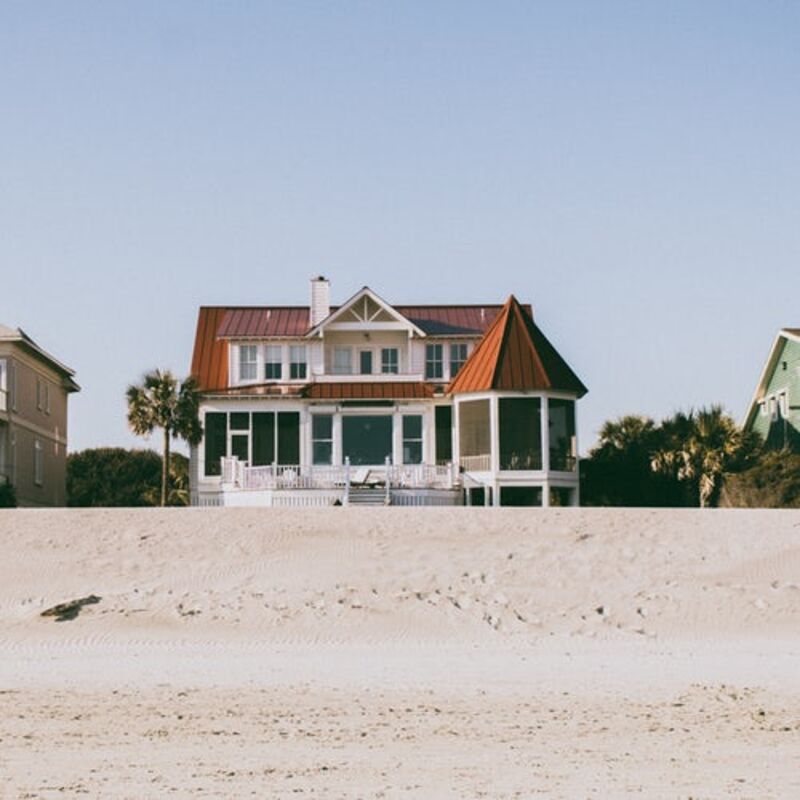
I absolutely love to go on vacation! I mean, who doesn’t? I enjoy planning out my trip from where I will stay to where I will eat to what attractions I will visit. Over the past few years, I have moved away from staying in traditional hotels while on vacation. Instead, I have used Vacation Rental Property (VRP) sites to find accommodations. With platforms like AirBnB and VRBO, I can easily find the perfect accommodations for me and my travel partners.
Using these platforms, I have stayed in a sprawling house in the Hollywood Hills with 14 other people and a studio apartment in a bustling city. Our family has stayed in a condo in the Colorado mountains and in a lovely beach house. Last year, I even stayed in a unit that was in an unfinished building (not my best VRP experience).
How VRPs Work
In case you are not familiar with how the process works, I’ll break it down for you. “Hosts” list a room in their house or the entire property for rent. Hosts can choose the schedule and price per night that they are comfortable with. They also list their requirements for guests. This means, they can indicate if their property is pet-friendly, if they will accept children, and even if they allow smoking. The hosts also give the potential guest an idea of what they might expect. This includes the number of beds, if there is a washer and dryer, what appliances are found in the kitchen, and other amenities.
Once a property is booked, the listing platform takes a fee from the host and the host is paid. For the host, this is a great way to make supplemental income. For the guest, a whole new world of accommodations is opened. You can choose from a unique home in a hip neighborhood or a cabin in the woods. You can find a VRP with a private pool, or one that can accommodate your entire family.
In 2018, the RMADAC completed research on the accessibility of Vacation Rental Properties. We posed the question: Are vacation rental properties businesses subject to the Americans with Disability Act of 1990? You can find a full report of our findings here.
Why does this matter?
Imagine booking a VRP using an online platform and believing that the unit will be accessible to your travel partner who uses a wheelchair. When searching for a property you use the filters to find one that meets the specifications that you need. You communicate with the owner to make sure that the doorways are wide enough for the wheelchair to pass through and there is a seat in the shower. You feel great about your choice. But when you arrive at the property, you find that there are 65 steps to get to the unit – and no elevator. Your travel partner cannot access your vacation rental property.
Do you have rights under the ADA?
According to our research, yes. VRP hosts (and platforms) are businesses that offer public accommodation. Therefore, they require ADA compliance and individuals with disabilities have rights. This can be tricky because property owners may not understand all the intricacies of the ADA and the long list of requirements in the 2010 ADA Standards for Accessible Design. However, we found that the owner (in the case outlined above) could be responsible for ensuring their VRP is ADA-compliant.
Could be? Tell me more.
VRPs built before the 2010 Standards were adopted may have some leeway when it comes to this rule. But, if there has been an alteration to the property, they must comply with the 2010 Standards. This is, of course, unless it is “technically infeasible.” An alteration that impacts a VRPs structural frame would likely prohibit compliance. This is determined on a case-by-case basis.
As of this publication, there have not been any lawsuits against individual VRP hosts who have violated the ADA. However, VRP platforms are stepping up their commitment to accessibility. In 2017, AirBnB acquired an accessible vacation rental start up, Accommable, and outlines accessibility in their non-discrimination policy. This is a great start. But we still recommend that travelers with disabilities engage in a conversation with potential hosts to avoid problematic issues, like the one I described earlier. We also encourage hosts to ensure their listing is accurate and that as many barriers are removed as possible.
With our completed research, we know that VRPs are subject to the ADA. But we also know that there is a long way to go to ensure that individuals with disabilities have equal access to VRPs.